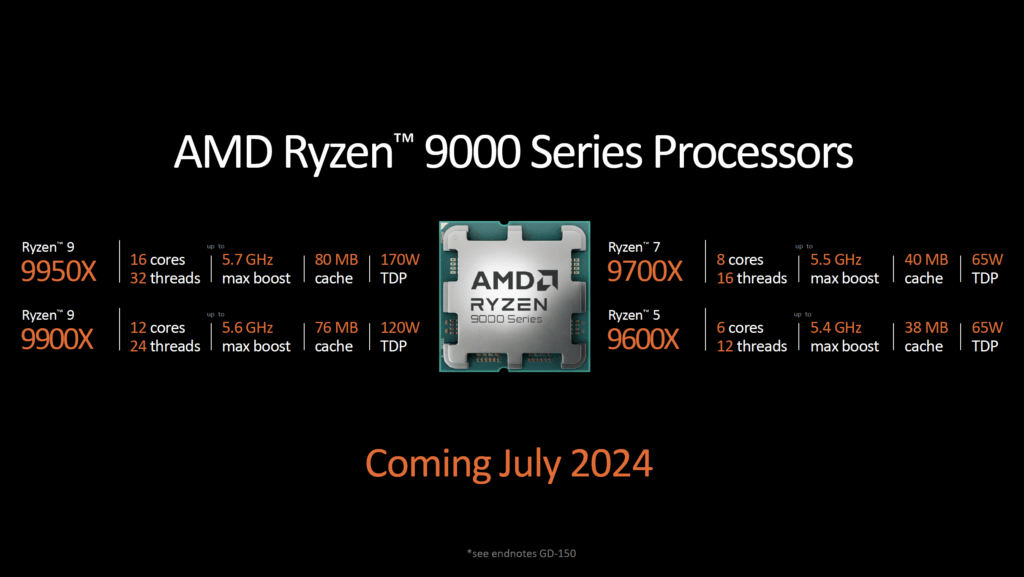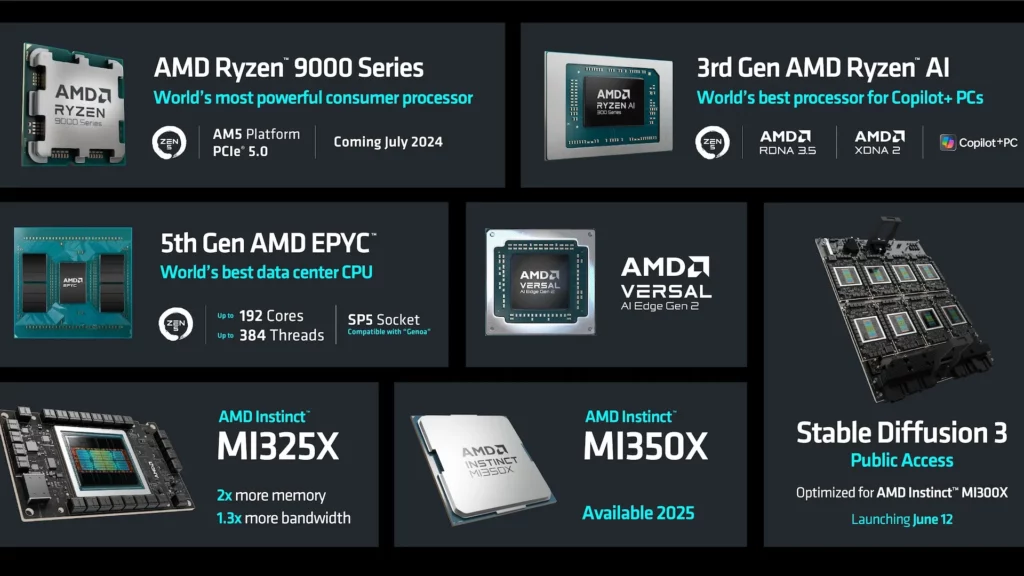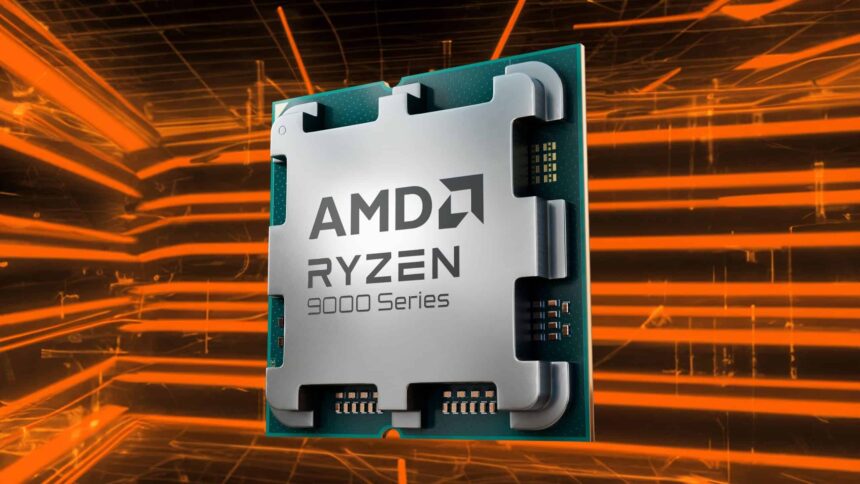AMD couldn’t please everyone with the Zen 5 launch, but they hit the mark with the Ryzen 9600X and Ryzen 7 9700X. While not the fastest compared to Intel, these chips are incredibly efficient and well-priced. Intel, on the other hand, has been struggling with falling market share, a drop in company value, and issues with its processors. It’s safe to say the 2020s have been rough for Intel, and things might get worse before they improve.

They tested the AMD Ryzen 5 9600X and Ryzen 7 9700X and found them impressive. With a focus on efficiency, AMD reduced the TDPs of these “X” processors to 65W, drawing a maximum of 88W from the socket. This allows for overclocking and highlights their efficiency without sacrificing performance. Despite lower power consumption, these chips deliver faster performance than previous generations.
Intel still leads in most benchmarks, so the AMD Ryzen 5 9600X won’t outperform the Intel Core i5-14600K, and the Ryzen 7 9700X won’t surpass the Core i7-14700K. However, AMD’s new Zen 5 chips use significantly less electricity and generate less heat. While no additional cores have been added to the Ryzen 9000 series, AMD has made significant architectural and manufacturing improvements. They met their goals, and even if these new chips aren’t worth upgrading from the previous generation, you’re less likely to switch to Intel.

Then there’s the issue of stability. Intel’s 13th and 14th generation Core processors have faced challenges. They run very hot under high loads and draw a lot of power. While still strong performers with high clock speeds, a microcode issue caused them to request voltages outside designed limits. This could cause irreparable damage to the CPU. Intel has been working on BIOS updates with motherboard partners and has extended warranties to address these problems.
AMD’s own stock charts haven’t looked great either, with a significant drop in value over the past month. They’ve started to recover ahead of this launch, and this trend should continue if Intel can’t resolve its issues. Intel slashing over 17,000 jobs and cutting dividends hasn’t helped matters. While share value isn’t everything, especially if you don’t own Intel stock, it does reflect market sentiment. As of now, Intel’s shares are just above $20, while AMDs are at $136.









